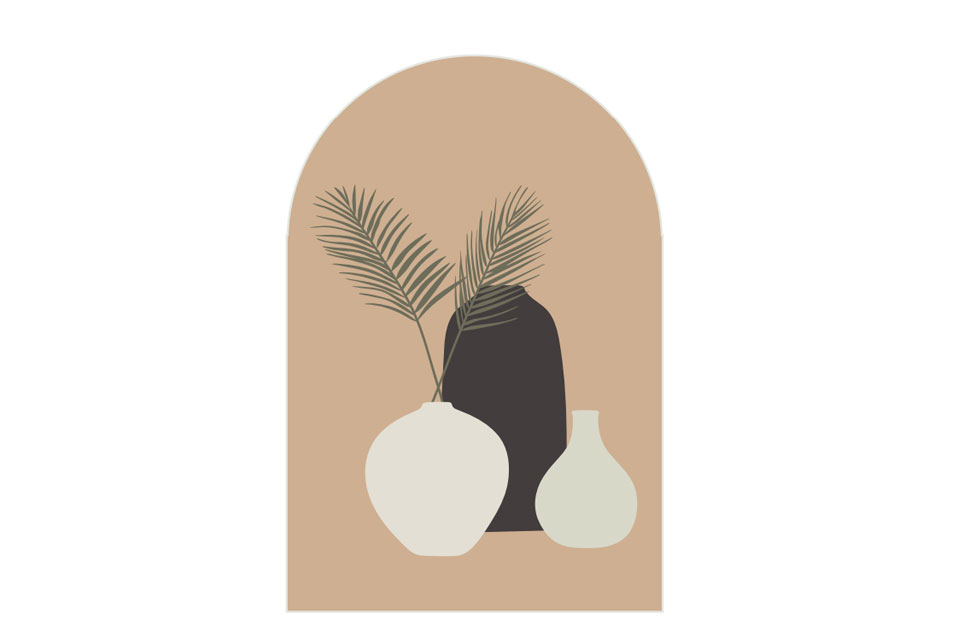By welcoming the inevitable changes in your life — big and small — you can take powerful, aligned action.
There are only a few sure things in life: birth, death and change. Change is a natural part of the human experience and yet something most of us are extremely resistant to. It’s said that the human race has survived this long due to our ability to adapt (change) to new circumstances, which begs the question … why are we so resistant to change?

Life is in a constant state of flux. Consciousness itself is always evolving. While, at times, it may appear that things are linear by nature, in fact the path is twisty, windy and non-linear. It moves like a river, ebbing and flowing, all the while constantly evolving (aka changing).
Change is a constant reality for us, whether we like it or not, but it’s often the most anxiety-inducing part of the human experience for many people. Change and uncertainty go hand in hand. We can repeat the same patterns over and over and, while they may not be good for us, they feel safe and comfortable. But changing!? Cue feelings of anxiousness, nervousness and dread. This is because the human brain is not designed to deal with uncertainty.
According to clinical psychologist Emily Toner, “Anything that is uncertain, scary or new is perceived by our brains as a threat and sends a stress signal to the brain to move into a fight-or-flight response. This can be so overwhelming, psychologically and physiologically, that we tend to abandon new relationships, new jobs, new ideas to ‘stay safe’ in the face of an uncertain outcome.”
The evolution of nature
You only have to look to nature to know that staying the same isn’t actually an option. On a cellular level, you are changing all the time. Some cells in your body renew daily, which means you are literally not the same person you were a few years ago. When we observe nature, we see that in order for things to thrive and grow, they must change with the seasons. We accept that mangoes aren’t available all year, yet we try to keep our own world consistent year-round.
This is because humanity has forgotten that we are nature. There is no separation and, like nature, we must ebb and flow, change and adapt.
There is, of course, a scale. Some uncertainty can feel a little overwhelming — even a little bit exciting, like butterflies in your tummy. But we can do things to ground ourselves. A few deep breaths into the belly work to calm our nervous system so that we can move forward with ease. But what about when there’s uncertainty that feels terrifying and demobilising?
How do we keep going and try to make the most out of life with so much uncertainty about what the future looks like for humanity and the planet? “We need to train our bodies and minds to be able to sit with uncertainty, discomfort and stressful experiences without triggering a stress loop, which leads to poor mental and physical health, and leaves us in fight-or-flight mode,” guides Emily.
Being resilient
In order to thrive as humans, we must increase our ability to adapt to change. “But how?” I hear you asking … Resilience.
Resilience is the ability to stay centred under stressful circumstances and bounce back after a setback. There are many ways we can train resilience. One of the most effective and effortless ways is to meditate. “Long-term meditators may be less reactive to stressful events and uncertainty, and may also return to their set point faster after they have experienced a stressor. It doesn’t mean they don’t feel uncomfortable emotions, but they are able to return to balance faster — they are emotionally agile,” explains Emily.

Studies comparing structural MRI scans of the brains of long-term meditators and non-meditators revealed that meditators had increased volumes of grey matter in the right orbitofrontal cortex and hippocampus regions of their brain, which are responsible for regulating emotions. This means that increasing your capacity to respond, rather than react, to change is as simple as sitting down for a daily practice of meditation.
Evolving internally
But what about those of us who are actively calling for change on many issues facing society? Sufi poet Rumi once said, “Yesterday I was clever, so I wanted to change the world. Today I am wise, so I am changing myself.”
As the wise Rumi reminds us in his poetry, we are not separate from nature. The underpinning teaching in so many spiritual traditions such as yoga and Vedic wisdom is the interconnectedness and lack of separation between us, others and nature. It’s all one thing manifest in different forms.
So, how do you change the world? Consciously change yourself. Meditate. Do things that regulate your own ability to adapt to change — to consciously respond to situations and be in touch with your heart so that you can act from a place of love, not fear. This will mean you are able to show up as a conduit for love and nature’s intelligence will be able to move through you to create powerful, aligned action in the world.
The power of adaptability
In all cases of change, adaptability is what we must master. The more we cling and attach to the way things are, the more we suffer. Think about a time when you held on for too long in a relationship or friendship. Now that you have the gift of hindsight, did clinging on bring you happiness and flow? It more likely caused suffering and stagnation, and prolonged the inevitable dissolution of that connection. When we surrender our attachment to the outcome, we allow things to flow in accordance with the intelligence of nature.
7 Tips to Embrace Change
- Establish a daily meditation practice. It’s best to learn a technique that you resonate with from a qualified teacher so that you have ongoing support on your journey.
- Practise breath work. The breath is a powerful tool when it comes to regulating your nervous system. A simple four counts in and six counts out can significantly alter your nervous system response.
- Reflect on your relationship to change. How resistant are you? Where does that resistance come from? Spend time journalling about these points and see if you can uncover the root of your unease towards change.
- Cultivate a yoga practice. Yoga is a great tool to teach you how to regulate your nervous system’s response to the external world.
- Change your mindset. Through practices such as meditation, this happens naturally. We become better skilled at shifting our response to a situation — to one that’s aligned with our highest good, rather than acting out of fear.
- Acknowledge how you are feeling towards the change. Feelings are like visitors — they come and go — so treat them accordingly. Allow them to be there, process them and then let them go.
- When you’re feeling overwhelmed, focus on the constant within change. This will help the brain calm down. For example, “I don’t know if I’m going to get that new job, but I do know that my life will continue whether I do or don’t get it.”
This article was originally found in Being Magazine Issue 10
BEING Magazine is available from WellBeingShop.com.au




